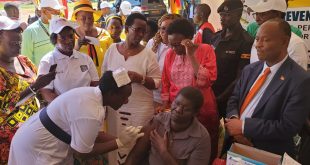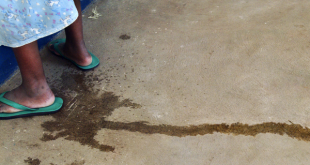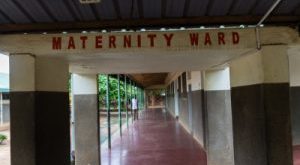
BY MARKO TAIBOT
ADJUMANI: WEDNESDAY, OCTOBER 5, 2022
The Adjumani district’s assistant health officer, Henry Lulu, has advised that the approach of identifying and diagnosing tuberculosis (TB) must be changed from people waiting to first fall sick to a deliberate information sharing and sensitization of the masses if the district is to fight of the menace of multidrug resistant TB (MDRTB).
He stressed that this can be done by taking outreach programs nearer to the people such as to the churches and mosques.
He made the remarks in the wake of the burdening number of the patients discovered with MDRTB in Adjumani.
Lulu attributed the high numbers to the mobile community of the refugees who keep moving in and out of their settlements and the impact of covid-19 that kept many people in closed confines.
“Aware that we are hosting many refugees who freely move across the borders between Uganda and South Sudan, we are facing a lot of challenges of lost clients who were initially diagnosed with TB and put on treatment,” Lulu explained.
Cumulatively since 2014, Adjumani district has recorded 55 cases of MDRTB with 30 nationals and 25 among the refugees. This is out of a total of more than 5,000 TB cases treated in the same period.
“The district is currently battling with 13 MDRTB cases among both the refugees and nationals and treating a single case costs the government Sh20m and they are only treated at higher level health facilities,” Lulu said.
Lulu also revealed that last year the district had 842 cases of general TB identified, with treatment success of 93% which is below the target of 95%.
“This is a greater health concern because it is very expensive to treat MDR TB patients,” Lulu stated
John Eriga Lonyi, a survivor of MDRTB said he tested positive for TB in 2010 and in June 2012 he became an MDRTB client when his infection developed resistance to the first-line drugs.
He was referred to Mulago National Referral hospital and later sent to Arua regional referral Hospital to continue treatment for 10 months.
“I become homeless, my wife went away, all my 11 children deserted me, but now I am trying to recollect them after completing my treatment” Eriga stated
“Actually, with MDR TB without any support, I was not going to survive, I was taking 37 tablets in a single day, I was injected 365 times from the buttocks, and the rest. I was not going to afford all these costs” Eriga said.
In 2018 after successfully completing his treatment of MDR TB, Adjumani hospital trained Lonyi to become an expert client on TB.
Lulu said the cure rate for MDRTB in Adjumani still stands at only 69%, below the target of 95% and 3.9% of the TB patients died while 2.8% of the TB cases were lost to follow-up.
“What is worrying us now is we are getting people as MDRTB who have not taken TB drugs before. For you to be an MDR case, ideally you must have taken TB drugs at least once in your life,” Lulu said.
He called for cross-border collaboration with South Sudan counterparts and other refugee hosting districts to trace patients who abscond from treatment.



